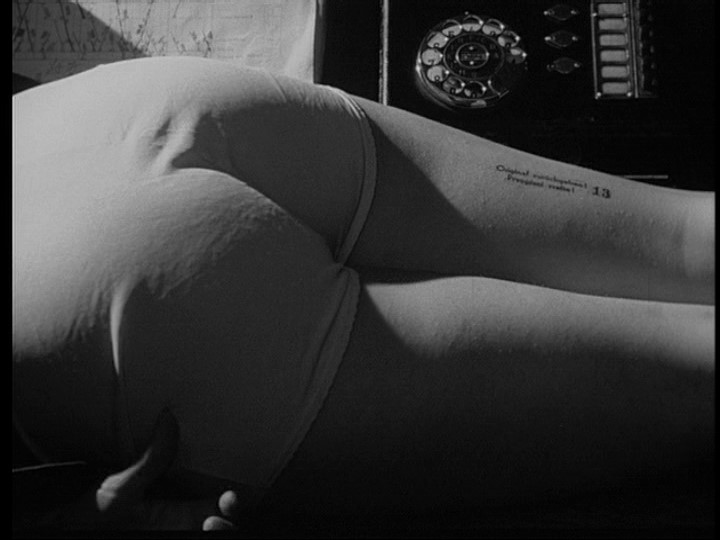Closely Watched Trains, directed by Jirí Menzel, is a film coming out of the shortly lived Prague Spring era and is considered a film of the Czech New Wave. A coming-of-age story about a young Milos Hrma sent to a provincial town to work as a train dispatcher parallels the sardonic tone of Munk's Bad Luck. The story begins with an comedic overview of the boy's paternal lineage and his forefathers' anti-heroic relationships with the military which sets the tone of dry comedy aimed at an awkward boy whose task is appropriating his weird background into normalcy and foreshadows Hrma's downward trajectory. We see Hrma's mother looking joyously at her son putting on his sharp work uniform. The camera captures the pristine outfit with a close-up shot that follows the cleans lines from floor to ceiling. The music triumphantly accents the hat crowning Hrma and comically exaggerates the importance of appearance as a marker of success. Clearly his family's values are questionable. Milos' grandfather was killed because he ridiculed hard labor. Milos' father measures success as doing the very least amount of work in his retirement. His eccentric uncle was killed when run over by a tank while attempting to stare the opposing army into submission and overcome war with his thoughts.

At the train station, Hrma meets other awkward characters which offer him space to fit in among the town's weirdos. The pigeon man, Mr. Novak, has seemingly little agency in the film at first glance. Aside from the obscure comedy he provides, Mr. Novak points out the ironic beauty of the clock tower which sounds after the explosion rips through the town, leaving it utterly destroyed; as if the forward motion of time is a universal promise of progress in spite of the horror that occasionally punctuates human experience. Mr. Novak falls on his ass after his beloved clock tower chimes as if to anticipate the fall of the town contrasted by the familiar chime of the clock tower. The bizarre man becomes a subtle microcosm within Menzel's world seen through this film. The complex hope suggested by light comedy is further complicated by the cynical sardonic undertones. Hrma dies at the hands of the Nazis. Every moment of the film casually walks you to the inevitable tragedy. However, the brilliant sequence near the end of the film streaming directly into the final explosion, created, for me, a nearly inexplicable affect because the fatal bullet ruptures the surface of light comedy that Hrma and his pristine uniform carried us through and the underlying tragedy that had been circulating the whole time flows through so violently that the whole town falls to the ground.

The domino effect can be picked up on beginning with the court scene. The girl confesses that her stamped thigh result of a name game requiring a list of everything that has wings can fly. She begins to list the objects which happen to be directly relevant to the plot: child, time, train, soldier, second, death, and lastly everything. The child, being young Milos, the chime of the clock tower, the Nazi carrier train, and the second Milos transforms from child to soldier is the moment of his death which is closely followed by the death of nearly everything after the explosion sends everything flying into the air, granting the whole town wings.
Just before Milos is shot, the words uttered are something like The most noble blood of Europe goes to front to fight for peace risking their lives or bloodshed. The dark side of the romantic hero figure is instantly exposed because this not-so-noble boy who recently overcame his deepest adversity, premature ejaculation, is martyred by the Nazis soon after having dropped the box onto the ammunition filled train that explodes the town.

No comments:
Post a Comment